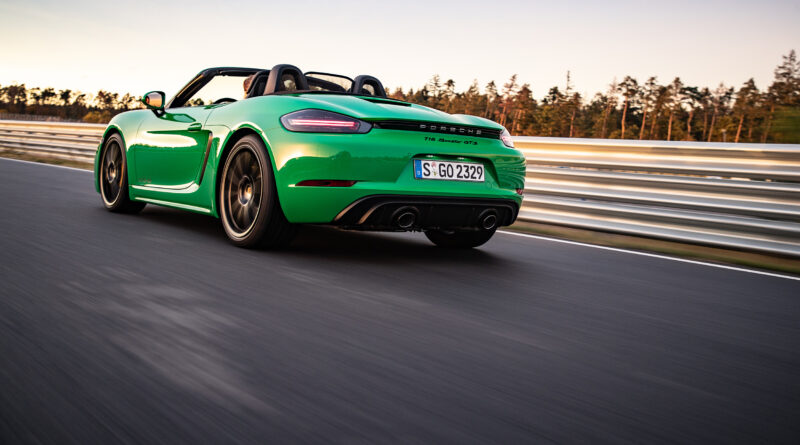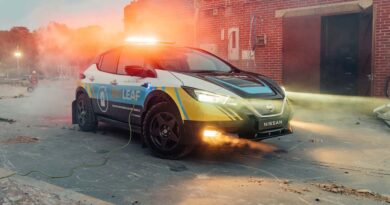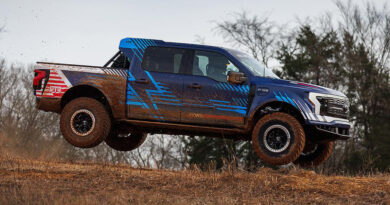Porsche 718 EV push a precursor to an electrified 911
Two of Porsche’s most famous sports cars could soon be making a very different noise – or almost no noise at all.
Porsche boss Oliver Blume is warming enthusiasts to the idea that the 718 Boxster and 718 Cayman – formerly just Boxster and Cayman – could switch to a purely EV layout.
No more exhausts hanging out of the rear. No more central tachometer spinning clockwise in a flurry of revs. And no more screaming six-cylinder engines.
It’s a monster statement from a company that’s built its reputation on high octane excitement.
Speaking after the company’s recent results announcement Blume discussed the potential for the brand’s two-seater sports cars to drop petrol in favour of electricity.
“There is an opportunity that we will do the 718 electric but we are still in a concept period, where we haven’t decided yet,” said Blume, adding that “to go electric now we need future battery evolution”.
Porsche is part of the Volkswagen Group, which recently held a Power Day where it outlined plans to rapidly advance its EV tech and focus on next-generation lithium-ion battery technology.
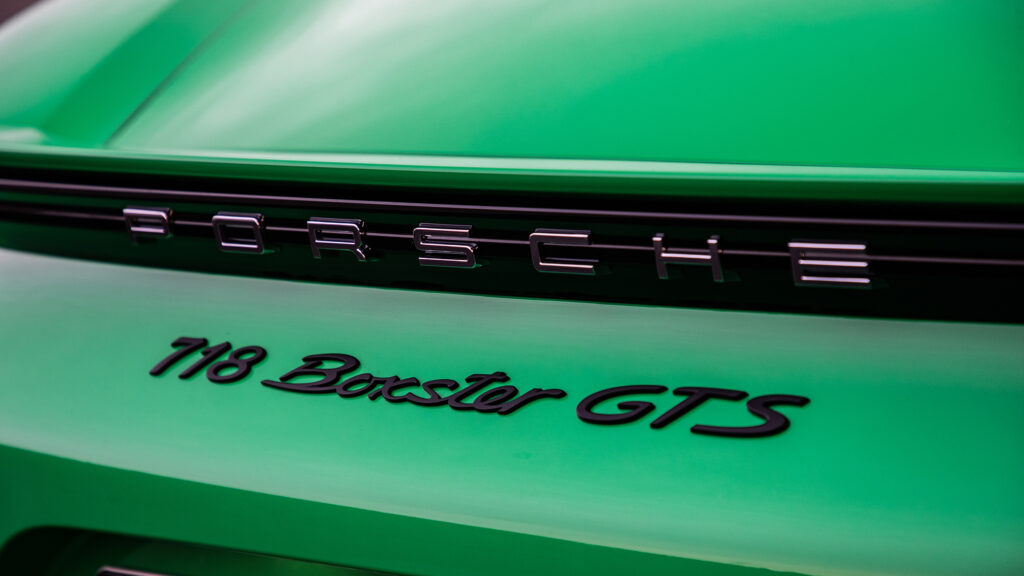
The company is investing heavily in battery tech and plans to out-Tesla Tesla in its rush to adopt electricity.
Blume recently commented that “the battery cell is the combustion chamber of tomorrow,” which is a big call for a company that has created some of the world’s best engines.
Think about it: all that engineering expertise that previously went into honing how fuel is exploded in an engine instead needs to be diverted to the chemistry and layout of modern batteries.
Back to the 718 Boxster/Cayman, Blume said a final decision was only a few months away. But, crucially, he kicked the door wide open for a decision many would consider a major shock.
“We will wait a couple of months more before we decide which concept we will use [electric or otherwise]. But I think there is a positive potential to do this, and when we do the 718 electric it should be driven like a 911 and all the other sports cars.”
Of course, Porsche has experience in making fast and exciting EVs. Its Taycan – and the recently revealed Taycan Cross Turismo – applies all that depth of engineering Porsche is renowned for and injects it into a car that is like no other.
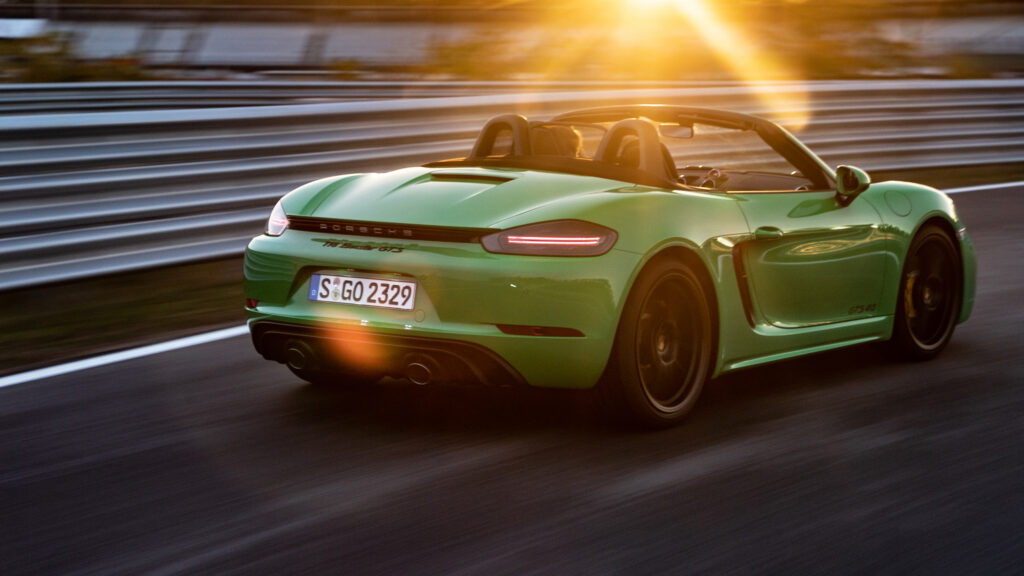
But the Taycan didn’t replace any model, it added to the family. So Porsche didn’t have to change its winning formula to dip its toe in the high voltage water.
Porsche has also committed to the next generation Macan mid-sized SUV being EV only (the current ICE Macan could sell alongside it initially).
But Porsche sports cars are sacred ground that Porsche works ludicrously hard to protect – with good reason.
When Porsche switched many of those 718 models from a six-cylinder horizontally-opposed engine – the classic Porsche sports car layout – to a four-cylinder they were meet with the type of enthusiasm with which people lunge at three-hour-old scrambled eggs slowly solidifying in a bain-marie.
It didn’t take long for Porsche to reassess and introduce new 718 variants that reintroduced that six-cylinder layout, in return reviving the driving magic. It’s the closest Porsche got to an admission that it made the wrong call – and was a reminder that Porsche enthusiasts won’t settle for something if it doesn’t tick every box.
It’s that driving magic that will be high on the agenda with the no-doubt-heated discussions going on internally about the future of the Boxster and Cayman.
But in many ways those discussions are a precursor to that most legendary of Porsches, the 911.
Porsche protects its sports car icon fiercely. The 911 defines Porsche. It helps sell Macan and Cayenne SUVs, as well as Panameras and Taycans. The 911 also helps sell Boxsters and Caymans.
Porsche knows if it gets the 911 wrong it can potentially impact sales of its entire range.
Which is one reason we haven’t seen a 911 with any form of electrification yet.
Porsche has been discussing hybrid versions of its 911 for a decade or more. The previous 991 generation of the 911 had an engine that could be adapted for a hybrid drivetrain. And the current 992 generation car has been designed to take a hybrid system. Porsche has “package-protected” the car in the event it needs to add electricity in order to meet future regulations, some of which may only kick in in some markets.
In 2015 then head of development for the 911, August Achleitner, told me a 911 hybrid was inevitable.
In 2017 the 911 model line director Thomas Krickelberg backed that up by reinforcing how intense the discussions had been on hybridising the 911.
“We are prepared if we have to do that, but we are not convinced that we should do it,” he said at the time.
Inevitably, the issue for the 911 has been weight and where to place the batteries to ensure the car can cover circa-50-kilometres on electricity alone to meet the super tough European CO2 regulations.
In 2014 Porsche even experimented with a flywheel as the energy storage device in lieu of a battery in its 911 GT3 R Hybrid race car.
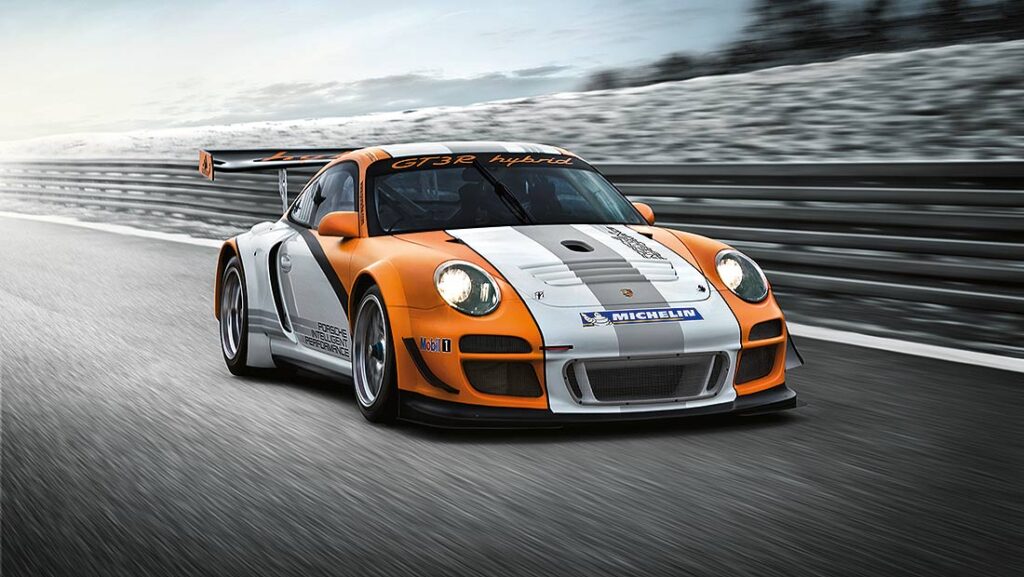
Yep, the 911 is known for doing things differently (the rear-engined layout the prime example).
But Porsche doens’t want to mess with the end result.
“We might have to give up the seats in the rear – and we are sure it is not a 911 any more,” Krickelberg said back then.
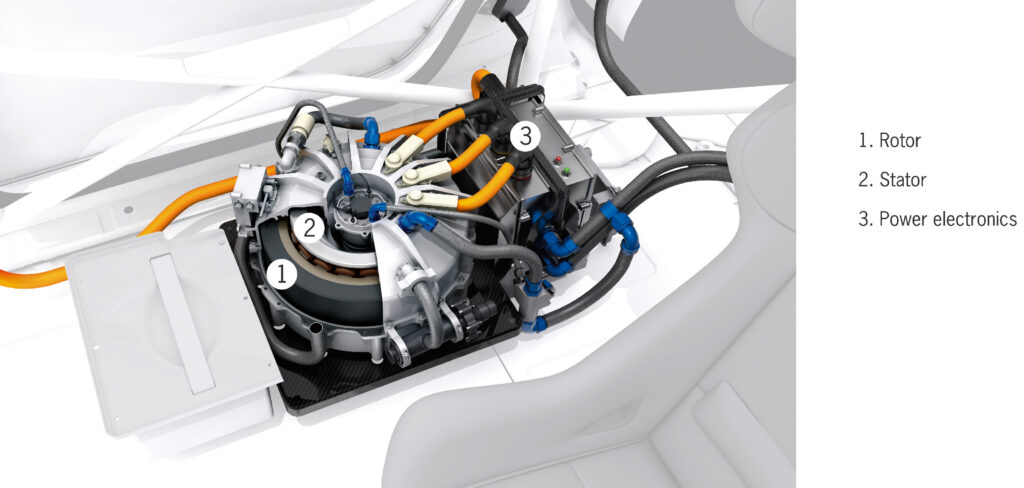
In other words, Porsche is open to the idea of electrification for its sports cars, but it doesn’t want to dilute the uniqueness and excellence those sports cars are known for.
All of which makes Porsche’s recent comments on the potential for electric versions of the 718 Boxster and 718 Cayman more interesting.
Those electric discussions appear to be a test bed for future Porsche sports cars, the 911 included. If Porsche can make it work with the 718, then those same learnings could be applied elsewhere.
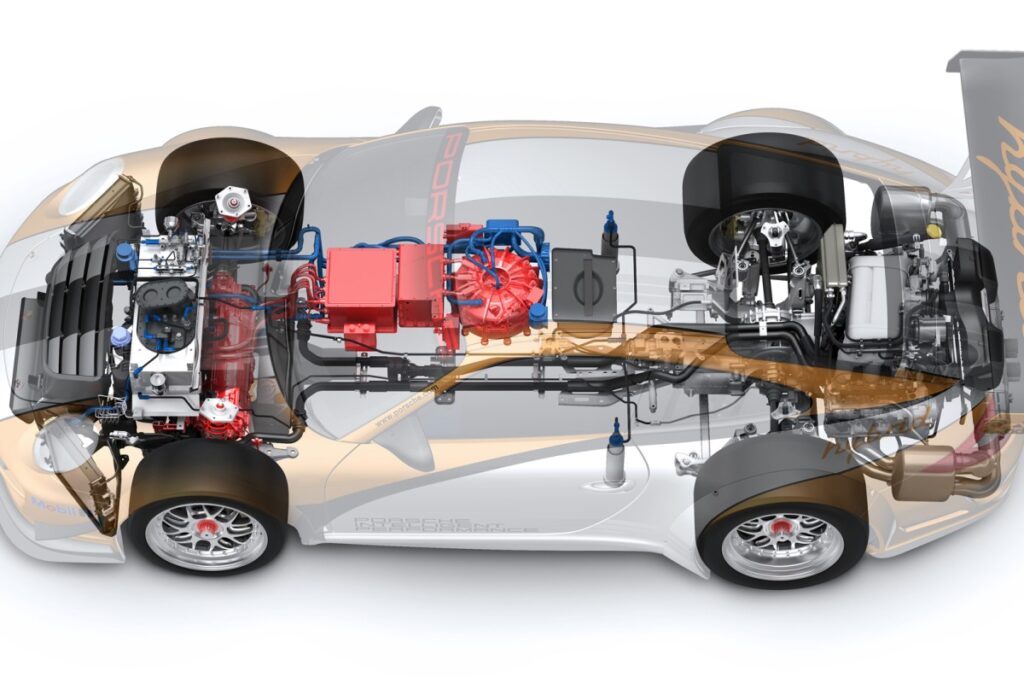
Porsche has shown before it is prepared to experiment with the 718, even occasionally making mistakes along the way But it will not do the same with the 911.
Any 911 needs to be perfect.
If Porsche can pull together the battery chemistry, the packaging and the sports car excitement in the 718 Boxster and 718 Cayman it surely opens the door for electrified versions of the 911.

